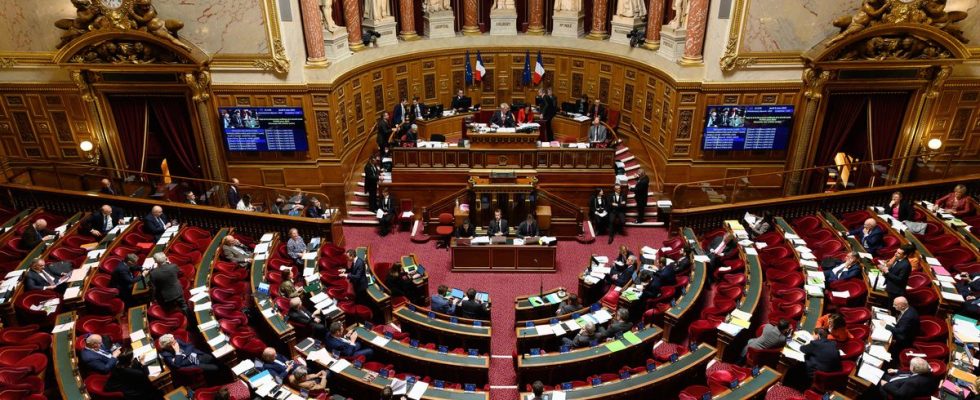By a final vote in the Senate, Parliament definitively adopted on Wednesday the text prepared by the government for the 2024 Olympics, whose important “protection” component convinces the right, unlike the left which fears a security Trojan horse. “Place for the games”, launched the rapporteur LR Agnès Canayer.
The vote on the compromise recorded in the joint joint committee was won by 252 votes “for” and 27 “against” (communists and ecologists). The Socialists abstained. The National Assembly had largely approved the text on Tuesday. But left-wing deputies have already warned that they would seize the Constitutional Council.
Worries about algorithms
This text “integrates all the measures essential to the smooth running of the Games (…), while ensuring full respect for the rights and freedoms of our fellow citizens”, underlined the Minister of Sports, Amélie Oudéa-Castéra. The Senate “has multiplied the safeguards, controls, guarantees”, noted Canayer.
Algorithmic video surveillance, the text’s flagship measure, nevertheless raises concerns. The goal: for algorithms to feed on images from cameras and drones to more quickly identify potentially dangerous “events”, such as the start of a crowd movement or the abandonment of luggage, and report them to the teams. security who scrutinize the gatherings behind their screens. But the list of “events” to be detected will be fixed later, which does not reassure opponents of the text.
The fear of generalization
The experiment, which could begin as soon as the promulgation and relate to the next Rugby World Cup (September 8-October 28), should theoretically end on March 31, 2025. The images, which can be analyzed using company algorithms private, may be kept for a maximum period of 12 months.
The executive and the Minister of the Interior, Gérald Darmanin, invoke the need to secure the millions of visitors, insists on the safeguards, and the absence of facial recognition. But left-wing elected officials, associations such as Amnesty and La Quadrature du net or the Conseil national des barreaux are against it.
Some believe that the Olympic Games (July 26-August 11) and Paralympic Games (August 28-September 8) will only serve as a showcase for perpetuating these “augmented cameras”, and generalizing their use for the surveillance of the entire population.
For the communist Pierre Laurent, “the state of exception created by the Olympic Games is used, in total, to pass security laws which will remain thereafter and which pose many problems”. The ecologist Guy Benarroche regretted “an unbridled vision of security and so far removed from the values of Olympism”.
One year after the Stade de France fiasco
Other measures of the bill are already supposed to continue after the Games, such as the extension of the field of “screening”, the conduct of administrative investigations on people. Participants and accredited persons at competition sites and fan zones may be targeted, but not fans.
The text will come into force about a year after the fiasco of the Champions League final at the Stade de France. Endless queues, spectators with blocked tickets while others without tickets climbed the gates, families and supporters targeted by gas shots… French-style policing emerged humiliated from the sequence.
More consensual measures
The government’s plan provides for the creation of two offences: one punishing illegal entry, in a situation of recidivism, into a sports arena. The other repressing the fact of entering the area or the field of competition. Environmentalists are particularly concerned that the measure will be used against climate activists. A mandatory stadium ban penalty for serious security breaches would also be created.
More consensual measure: the text provides for the creation of a health center in the Olympic village in Saint-Denis, although the opposition regrets that the structure does not survive the Olympics, in a department which lacks caregivers. It will also reinforce the anti-doping arsenal of the authorities, with in particular tests intended to detect forms of genetic doping.
Finally, it provides for derogations from the rules of Sunday rest, which will run from June 15 to September 30, despite the opposition of the parliamentary left, and support systems for the transport of spectators with disabilities.

